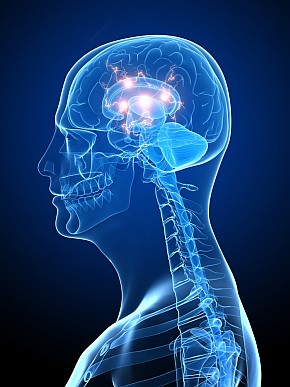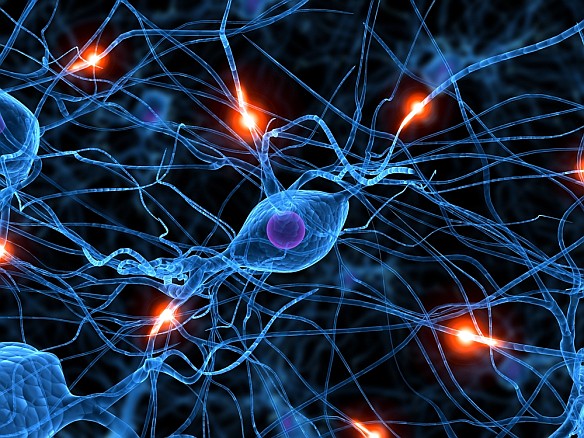…we are deeply driven by biological impulses and genetic predispositions, heavily programmed…. But …it is possible to learn how to better understand and direct our own minds, and to overcome some of our programming.
After reading an earlier post in which I wondered what my subconscious might be doing behind my back, a friend sent me a copy of Incognito: The Secret Lives of the Brain, a new book by neuroscientist David Eagleman. Though he does not intentionally draw any connections to Buddhism, Eagleman makes two major points that seem to parallel the Buddhist conception of the human mind. First, he argues that beneath the surface of our conscious thoughts, the vast and unexplored subconscious quietly exerts its influence at every moment. We may feel that we’re independently making judgments, forming opinions and choosing certain actions and not others, but in fact, we are deeply driven by biological impulses and genetic predispositions, heavily programmed to tend in certain directions. But Eagleman also shows that it is possible to learn how to better understand and direct our own minds and to overcome some of our programming. Recent advances in neuroscience reveal the brain to be much more elastic and flexible than we once thought.
“It is something like a young monarch who inherits the throne and takes credit for the glory of the country—without ever being aware of the millions of workers who keep the place running.”
The conscious self, Eagleman says, is “the smallest bit-player” in the theater of the brain, which nevertheless considers itself the star: “It is something like a young monarch who inherits the throne and takes credit for the glory of the country—without ever being aware of the millions of workers who keep the place running.” He provides example after example of how this is true, showing how our senses can deceive us, how we are influenced by cues that we don’t even notice, and how small changes in the brain can greatly alter our perceptions, actions, and personalities. Each of us may feel ourself to be a discrete and independent entity, but we are in fact a multitude of driving forces, which are often in competition with one another—and the more neuroscientists learn, the more complex the brain seems to be.
Eagleman then raises an ethical question, asking, if we are this ignorant about the way our own minds work, what does that mean for personal responsibility? If we “know not what we do,” does that mean that all should be forgiven? To address this question, he spends a chapter of his book looking at our current criminal justice system. His overall position—which also seems in line with Buddhist thought—is summarized in the chapter’s title: “Why Blameworthiness is the Wrong Question.” We hold people responsible for actions that we consider to be within their control, but if we are all much less in control than we think we are, we have no clear basis on which to judge how responsible someone is for a particular action—whether robbing a bank or helping an old lady cross the street.
 To truly evaluate how much a person is “to blame,” for a crime, a judge or jury would have to consider an impossibly complex set of circumstances, going all the way back to before the perpetrator’s birth: “Was there fetal maldevelopment, cocaine use during pregnancy, child abuse, a high level of in utero testosterone, any small genetic change that offered a 2 percent higher predisposition to violence if the child was later exposed to mercury?” There is no way to fairly consider all of the biological factors that lead a person to act in a certain way, and so it is misguided and wasteful to put so much effort into trying to assign blame.
To truly evaluate how much a person is “to blame,” for a crime, a judge or jury would have to consider an impossibly complex set of circumstances, going all the way back to before the perpetrator’s birth: “Was there fetal maldevelopment, cocaine use during pregnancy, child abuse, a high level of in utero testosterone, any small genetic change that offered a 2 percent higher predisposition to violence if the child was later exposed to mercury?” There is no way to fairly consider all of the biological factors that lead a person to act in a certain way, and so it is misguided and wasteful to put so much effort into trying to assign blame.
Eagleman makes it very clear that he thinks people who pose a danger to others must be kept away from the rest of society, but he argues that the current assumptions about responsibility and punishment are based on an inaccurate understanding of the human brain. Instead of looking to the past to determine how responsible someone is for their actions, Eagleman thinks we should be mainly concerned with the future—with determining how likely it is that a person will commit a crime again. Not surprisingly, he believes that brain analysis can play a more significant role in the courtroom, helping judges and juries to make such determinations.
Eagleman argues that there is real potential to strengthen the actual neural connections involved in a person’s ability to control impulses and consider long-term consequences….
Eagleman also believes rehabilitation should be taken much more seriously and that more attention should be paid to the possibilities of rehabilitating criminals on a neurological level. Scientists once believed that our mental circuitry was essentially fixed at a very early age and that it was impossible to create new neural connections and pathways, but it now seems that we’re much more capable of changing our brains than we once thought. Eagleman argues that there is real potential to strengthen the actual neural connections involved in a person’s ability to control impulses and consider long-term consequences, thus making it less likely that he or she would break the law in the future. He describes a fascinating experiment showing how such neural connections could be strengthened. Subjects look at pictures of chocolate cake while their brain is being scanned. They can also see a computer screen with a vertical bar that serves as a kind of “thermometer” for their craving: if parts of the brain associated with craving are highly active, the bar is high, and as those parts become less active, the bar goes down. The subjects’ task is to focus on the bar and practice making it go down, and they can generally learn to do so, even when they are not consciously aware of what they’re doing to suppress the craving.
With practice, we can change the very structure of our brain and better learn to control it. This exciting prospect is a relatively new development in the world of neuroscience; but if the Buddha read Eagleman’s book, he might smile to himself, quietly thinking something along the lines of, “Well, duh.” Though rational, scientific investigation is generally set in opposition to introspective or spiritual modes of inquiry, it seems that advances in neuroscience increasingly support ancient Buddhist understandings of mental transformation. Buddhist philosophy is based on the idea that we don’t understand or control ourselves very well, but we can learn to do so much better. On the question of personal responsibility, Buddhism goes much further than Eagleman: learning to transform the mind is important not only for criminals or people who have suffered brain damage, but for every one of us. Gaining some freedom from our habitual tendencies (or neurological programming) is the single most effective way—perhaps the only way—to make choices that will bring peace and compassion to our experience of ourselves and our relationships with others. And what could be more important than that?

